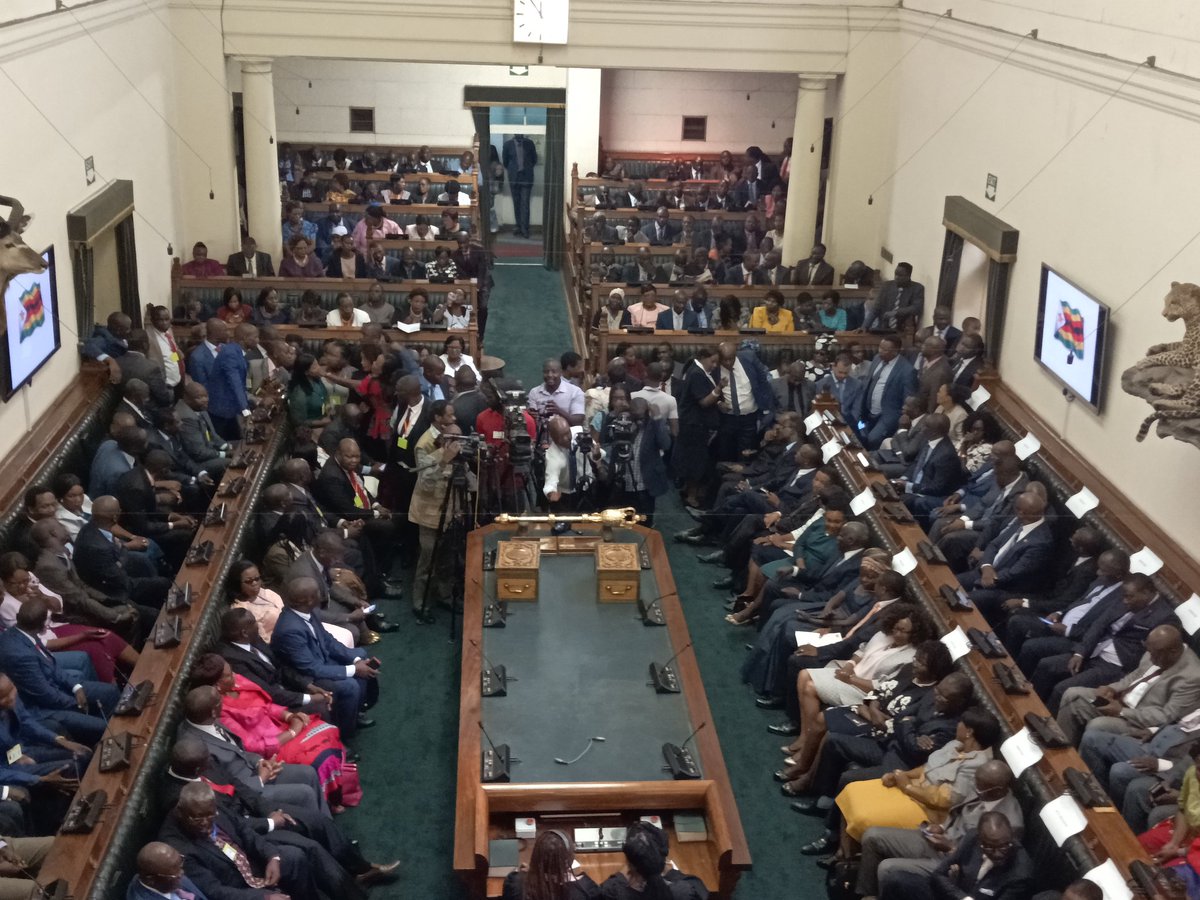by Christopher Makaza
MDC-Alliance legislators are disgruntled over their leader, Nelson Chamisa`s directive to boycott parliament business in protest of the recalling of four MDC legislators, arguing that they heavily rely on parliament sitting allowances for their upkeep.
Leaked chats from a WhatsApp group called an ‘MDC Alliance Parly Caucus’ revealed that many legislators especially those from Bulawayo are irked by the directive, arguing that the intended boycott may result in them losing their sitting allowances.
A contact who is in the Whatsapp group revealed that the MDC proportional representation legislators, Dr Ruth Labonde, Lindiwe Maphosa, Virginia Muradzikwa and Memory Mbondiah were on the forefront in objecting the imposed directive.
Several MDC legislators who include David Tekeshe, Joice Makanya, Virginia Mafuta, Peter Moyo, Winnie Kankini and Vincent Tsvangirai continued to attend different parliamentary portfolio committee meetings in defiance of Chamisa`s directive despite intimidations and threats on their lives.
In the leaked Whatsapp discussion, Muradzikwa took MDC-A Secretary for Presidential Affairs, Jameson Timba to task over the party`s position to boycott parliament business arguing that ZANU-PF will take advantage of their absence to influence the MDC legislators` expulsion from Parliament. Muradzikwa noted that the development could be disastrous to the party, as funding of party activities, which largely rely on legislators` allowances will be highly affected.
Due to lack of funding and mismanagement of funds, the MDC Alliance has a policy where councillors, legislators, and the top leadership contribute part of their allowances to fund party programmes. Therefore, directing legislators to boycott Parliament will impact negatively on the embattled opposition party.
Mbondiah argued that the ruling party ZANU PF would also take advantage of the absence of the opposition in Parliament to enact bills of their choice without any opposition. She noted that those opposition legislators proposing continued boycott are seasonal legislators who have been in Parliament for a long time and are already established.
Labonde suggested that if the party was serious in disengaging with the Government, it should not do so partially, questioning why the directive is only targeting legislators leaving out councillors.
Maphosa hinted that the opposition was likely to face embarrassment from the legislators who may decide to participate in Parliament business from 2 June should the much awaited High Court ruling by Justice Tawanda Chitapi on the recalled legislators come out negative or postponed.
Maphosa highlighted that the majority of MDC legislators were struggling to make ends meet, hence, they will be forced to participate in Parliament so that they continue to receive allowances.
Timba suggested that the discussion be halted until the High Court judgement is out.
A contact within the opposition party said most legislators were proposing that Chamisa should participate in the extra ordinary congress so that he gets legitimacy as he is already popular.
Others in the Whatsapp group noted that if the High Court judgement came out negative, they would pay allegiance to Khupe to protect their interests.
Meanwhile, political analysts have warned that Chamisa was not likely to succeed with his decree. “His directive was a bad and irrational call which is already backfiring spectacularly, contributing significantly to the threat facing his political career. It would be a bad idea for legislators not to attend Parliament business when they are expected to represent their constituencies in the august house, especially during this COVID-19 period where they need vital information,” said political analyst Terrence Mapuranga.
If the opposition legislators continue to boycott Parliament business, they risk losing sitting allowances and other benefits, legislators are entitled to. MDC legislators should also be wary of expulsion which according to Parliament’s Standing Rules and Regulations, an MP loses a seat after failing to attend Parliament sittings for 21 consecutive days.




